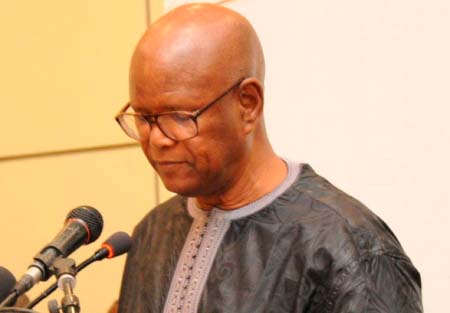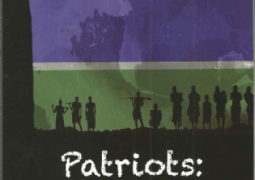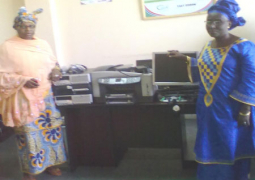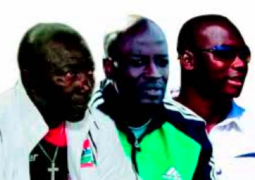
The
Minister of Information and Communications Infrastructure has noted that
22-rule of Yahya Jammeh left “a fragile relationship and suspicion between
journalists and the security forces” in The Gambia.
“The
onus is now on all of us to change this ugly past to better and improve linkage
of the two vital institutions,” Minister Demba Ali Jawo said on Monday at the
opening of two training sessions for Gambian security forces on freedom of
expression and the safety of journalists.
The
training at Djembe Beach Resort were organised by Article 19 West Africa
office in partnership with UNESCO and bankrolled by the European Union.
Minister
Jawo said: “We are all witnesses to the unfortunate arrests, torture,
disappearance and killings of journalists in the former regime including forced
exile on media personnel and other voices of decent.
“Most
of those persecutions were either rightly or wrongly blamed on security forces,
hence the need to enlighten each other on the role of security forces in a
democratic state.”
He
pointed out that both Article 19 of the Universal Declaration on Human Rights,
and Article 9 of the African Charter on Human and People’s Rights promote and
safeguard the rights of journalists.
“The
role of the media as the fourth estate in any democratic process has been
universally accepted and the New Gambia would not be an exception,” he affirmed,
adding that the spreading news and free flow of information can only happen
under safe and secure conditions.
Himself
a veteran journalist, the minister said the government of President Adama
Barrow has put the empowerment of the media, access to information and freedom
of expression as a policy objective.
“Therefore,
the trust and confidence among the media, security forces and the community has
to be at the forefront of this policy,” he said, adding that the government is
committed to enforce the UN plan of action on safety of journalists.
In
this regard, he said, plans are underway to repeal all repressive laws that
inhibit freedom of expression and subject journalists to work under difficult
circumstances.
“Discussions
are at an advanced stage with stakeholders such as the Gambia Press Union,
Article 19 and the Ministry of Justice to work together towards the development
and enactment of the Freedom of Information Act and the formulation of a media
friendly regulatory framework,” he said.
Attila
Lajos, European Union Ambassador to The Gambia, also noted that the new
government has a lot of work to do, including rewriting the bad legislation of
the former government, if it has to fulfill its promise of protecting freedom
of the press.
He
said it is crucial to re-establish trust and a working relationship between
security forces and media professionals in The Gambia and the population as a
whole.
Leszek
Jereme Bialy, UNESCO regional officer for West Africa, said through the
training, cooperation would be strengthened to ensure that security forces
uphold the right to freedom of citizens through a better understanding of the
roles and functions of journalists and media professionals in a democratic
society.
“Security
forces need to be more aware of the role of journalists in a democracy and
their own function to ensure a climate of security necessary to guarantee
freedom of expression, freedom of the press, and human rights in general,” Mr
Bialy said.




